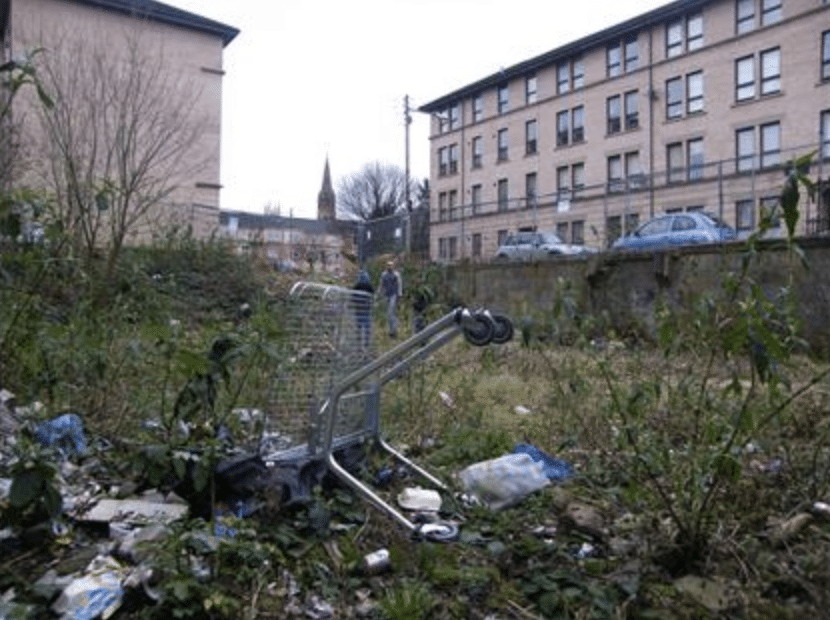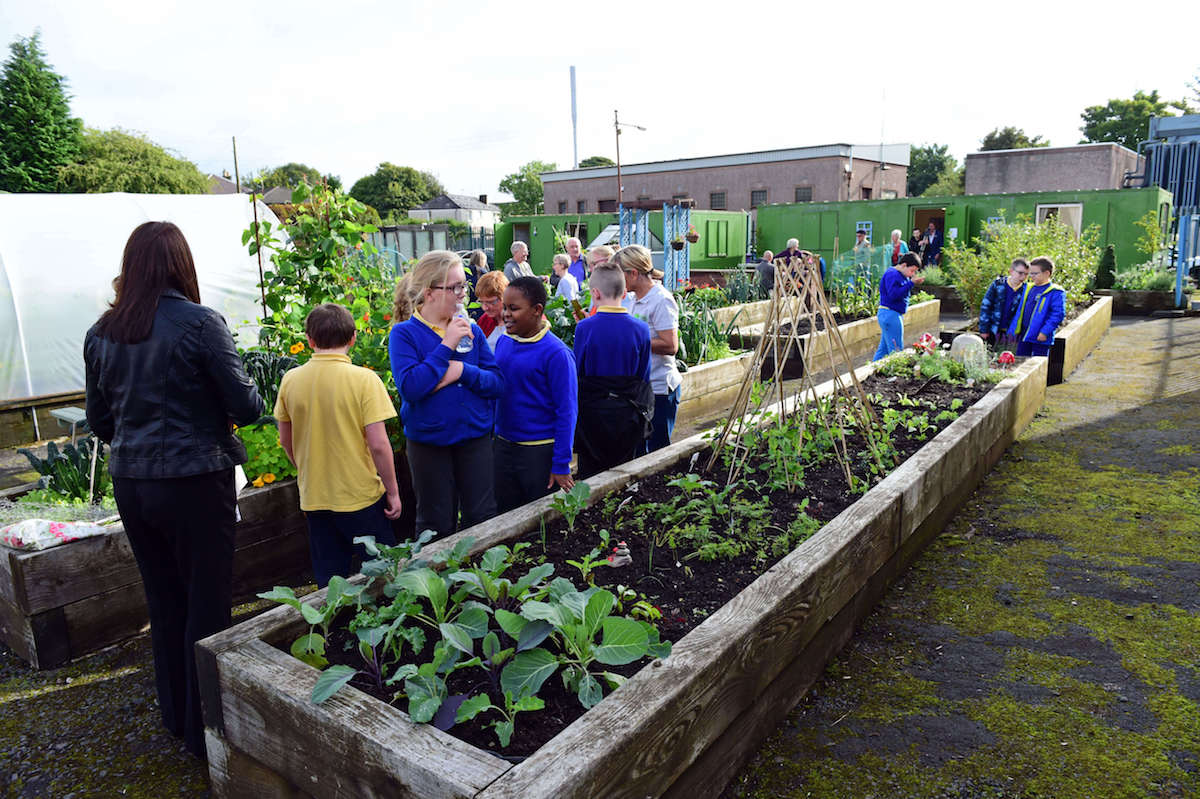The Benefits Of Community Gardens
Community gardening can benefit our society in many ways, these benefits are felt by the individual, the community and the environment.
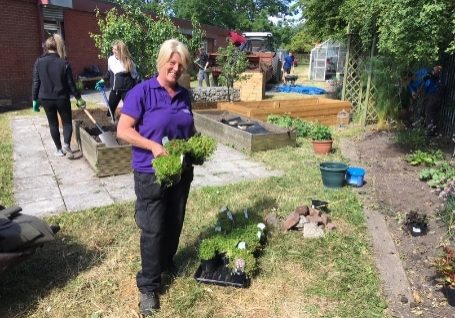
The Individual
The impact on lives individually can be incredible in terms of both mental and physical health.
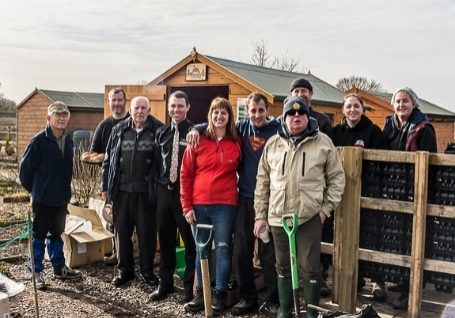
The Community
The local community can benefit in a number of ways in terms of social cohesion, community spirit, improving the value and condition of the neighbourhood, and even bringing a new cultural richness to the area with arts and community events. As this grows it all adds to the health of our larger society too.

The Environment
If community gardening becomes a widespread phenomenon it will help us to become a greener and more sustainable culture, doing our part in the battle against pollution and climate change.
Health Benefits
FITNESS
Regular gardening can do wonders for your physical fitness. Did you know that three hours of gardening can compare to around an hour of intensive workout in the gym? According to nutritionists at Loughborough University mowing, digging and planting for two to three hours can help burn up to one pound a week. A Harvard Medical School study showed you can burn between 300 and 500 calories an hour while gardening. It can also keep you strong, limber and active at any age.
NUTRITION
Gardening is a fantastic way to get people excited about eating fresh and nutritious food. With diabetes quickly becoming one of our biggest health problems in the UK it's time for us to invest in getting people educated and excited about the food they eat. Growing your own food is the most natural way to create that interest.
Most community gardens also operate an organic model, which means consuming less pesticides and chemicals.
GOOD FOR YOUR MIND
It's not just about physical health; gardening is proven to be great for our mental health too. Now widely known as 'Horticultural Therapy', the benefits have been researched and published in many domains. Gardening, and especially community gardening, is being prescribed by both the NHS and by charities such as Thrive as an incredible tool in healing and recovery, as well as general mental health.
Gardening in general is wonderful for mental health, but community gardening goes one step beyond that because community gardening is also about people. Too many of us are living isolated lives in the modern world. These projects bring people together in a shared pursuit and a safe environment. It introduces us to our neighbours once again and that sense of belonging and connection is powerful.
CHILDHOOD OBESITY
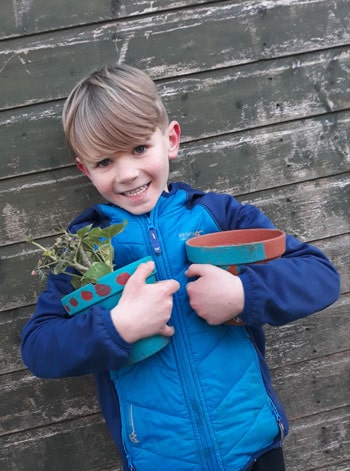
One way that these benefits play out to the great advantage of society is in reducing childhood obesity.
The World Health Organization (WHO) regards childhood obesity as one of the most serious global public health challenges for the 21st century.
The National Child Measurement Programme (NCMP) results from 2014 show that 31.2% of children aged 2 to 15 were classed as either overweight or obese.
Getting children involved in school and community gardening projects does two things to combat the rise of child obesity.
- It provides a fantastic, regular form of exercise that can burn a lot of calories every week
- It gets them involved in growing healthy and nutritious food and can potentially help to develop lifelong good habits
Benefits to the Community
SOCIAL COHESION
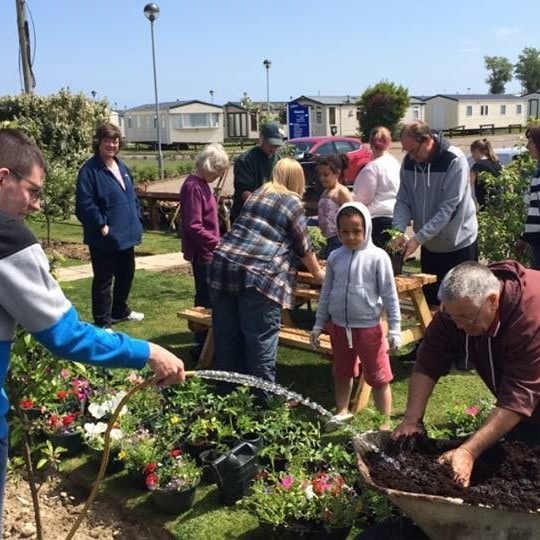
One of the most inspiring things we get to see in this campaign is the way it brings people together.
We see the generation gap bridged, with older and younger generations getting to know, understand and respect each other in new ways as they discover a shared passion in gardening.
We get to see people of all races, religions, economic and cultural backgrounds working and laughing together. We see people who felt alone and disconnected finding a place in their community, getting to know their neighbours and making new friends.
I hear so many people talking about how they feel out of touch with their community. About how no one knows many of their neighbours anymore.
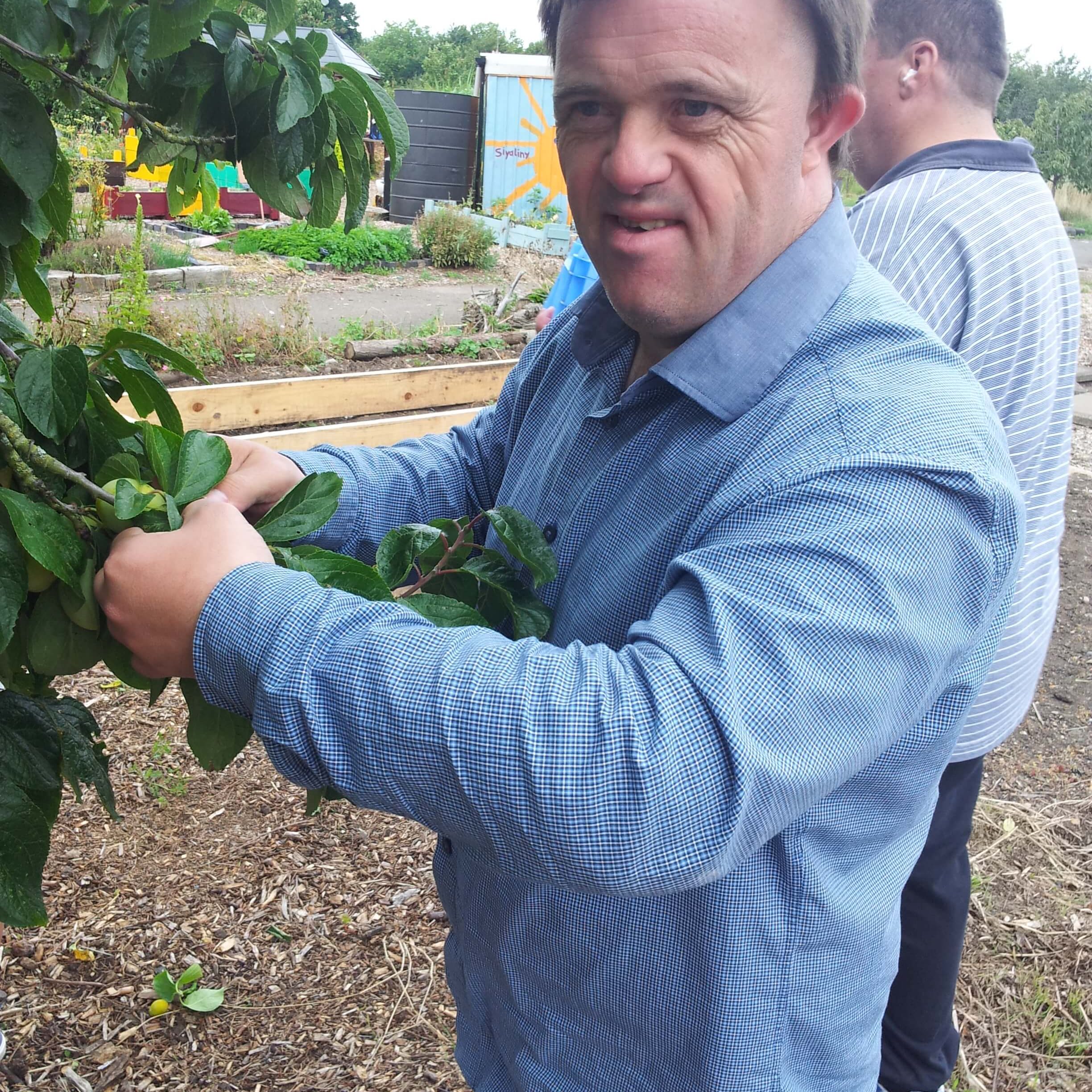
Society has become more mobile and technology keeps us in touch with people further away, making us less dependent on those near us. With the decline of local shopping centres and local institutions like churches – which used to bind people together – it’s clear that community gardening can go a long way towards regrowing the pride, the sense of belonging and the support that the local community used to give to people.
We want to make that happen.
AREA REGENERATION
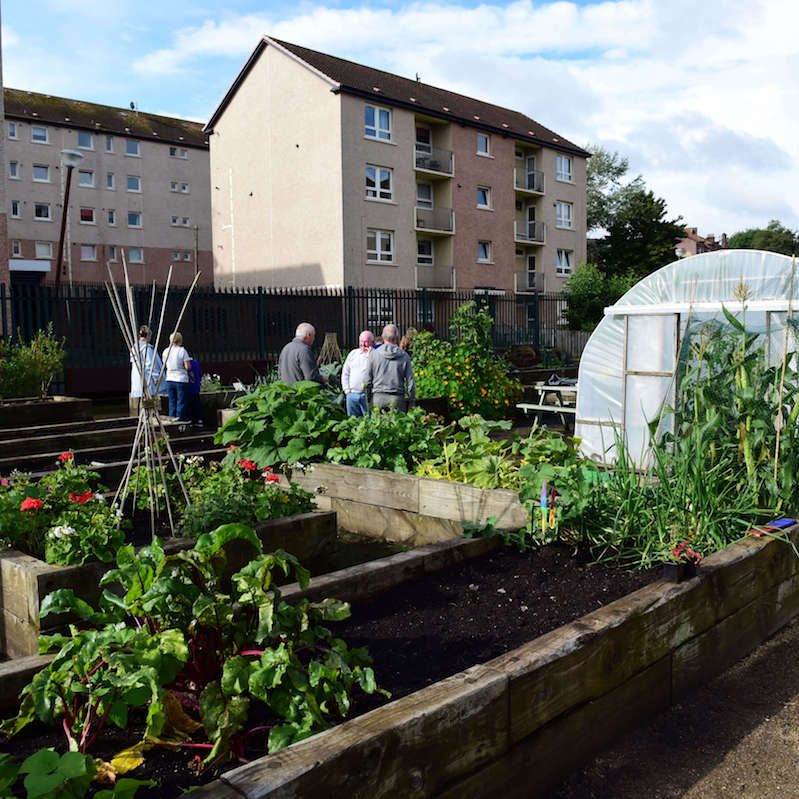
Nothing will bring an area down like a piece of unused land that just sits there gathering rubbish and getting overgrown. We've all seen it. In the end it will affect the pride and care people feel for their neighbourhood and potentially even lower house prices.These pieces of land could have a brighter and more production future – take a look at this fantastic transformation by Woodlands Community Garden in Glasgow.
When people start investing in their area it often starts a chain reaction of positive benefits and residents end up caring more for the neighbourhood and their neighbours. Soon we see littering and graffiti begin to decline, people taking better care of their own properties and front gardens, neighbours looking out for each other and pulling together and even a reduction in local crime rates.
Move the slider across to see the garden transformation
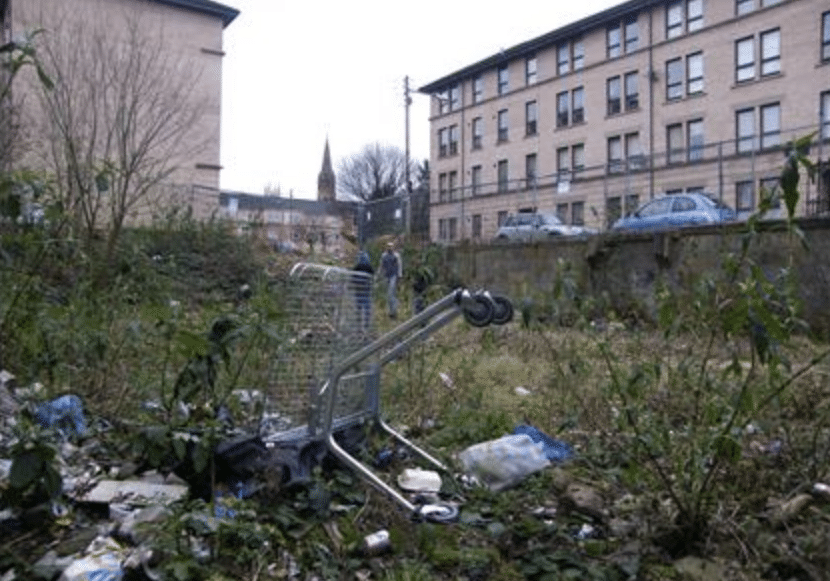
BEFORE
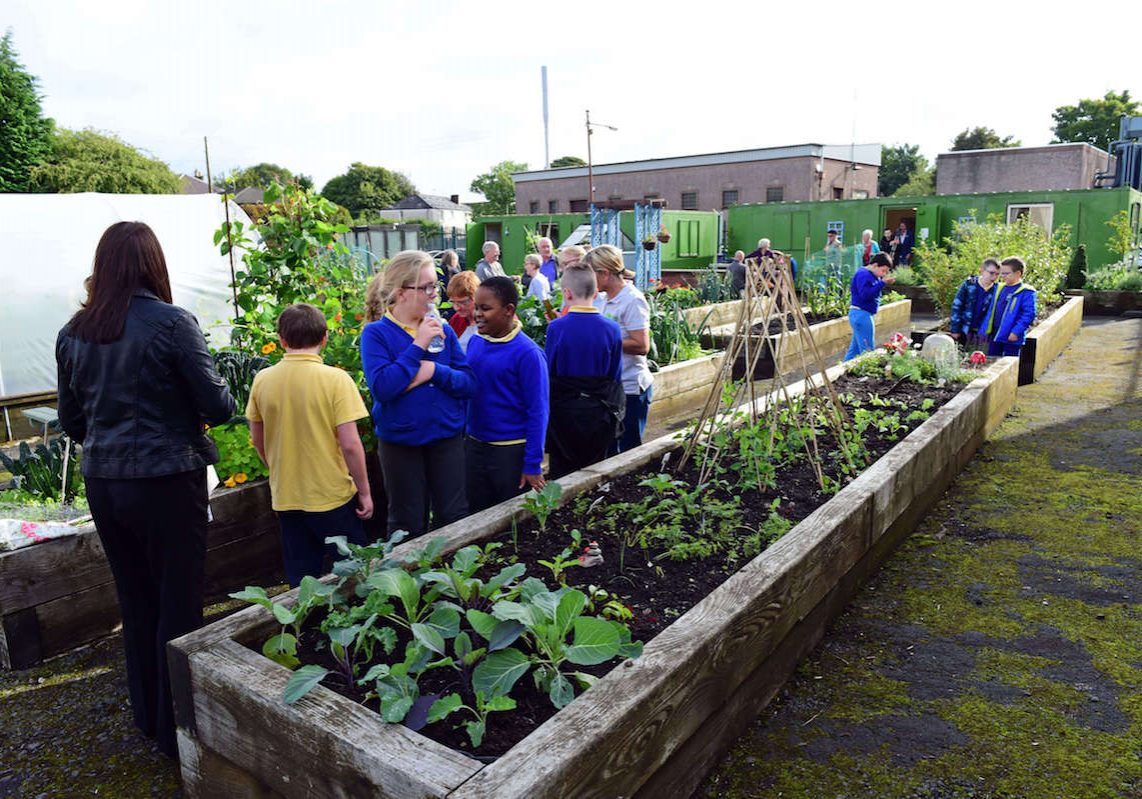
AFTER
Benefits for the Environment
Community gardening impacts the environment in a number of incredibly positive ways. Aside from the obvious advantages of growing food locally and organically, which cuts down on transport emissions and pesticide use, community gardening can bring positive change in two other particular ways: by driving forward the larger movement of ecological urbanism which seeks to find a more balanced and harmonious way to create and adapt our urban environments and by creating sustainable urban drainage systems that help to the solve the flooding problems being caused by our obsession with hard landscaping.
ECOLOGICAL URBANISM
As the world battles with the results of climate change on a large scale and with local ecological destruction on a smaller scale, we can all agree that there has to be a change in our philosophy of urbanisation. Cities are inevitable to civilisation, so we have to be intelligent and considerate in how we shape and work with our environment. Ecological urbanism is an ideal - one that says human communities must be sustainable, harmonious and balanced in their design and function. The impact of this endeavour is not only environmental, but research has shown again and again that it plays a powerful role in the social and psychological health of those communities.
This is why at Cultivation Street we believe in the community garden movement as a remedy to several societal problems and in gardening in general as a bringer of health and happiness to all.
SUSTAINABLE URBAN DRAINAGE SYSTEMS (SuDS)
By using a series of different management processes, SuDS mimic nature's drainage patterns to deal with rainfall as close to the source as possible, improving water quality before releasing into the watercourses
As the population grows, increasing development and urbanisation are inevitable. But development brings its problems, and one of those regards rainfall and how our environment copes with it. When free-draining soils are replaced with impermeable surfaces, during heavy rainfall our urban drainage systems often can't cope and we see surface water flooding. The cost both in terms of human suffering as well as the monetary loss can be staggering. Sustainable Urban Drainage Systems are a way of building natural drainage systems into the urban environment in an aesthetically pleasing and highly effective way that benefits both the community and the local environment.
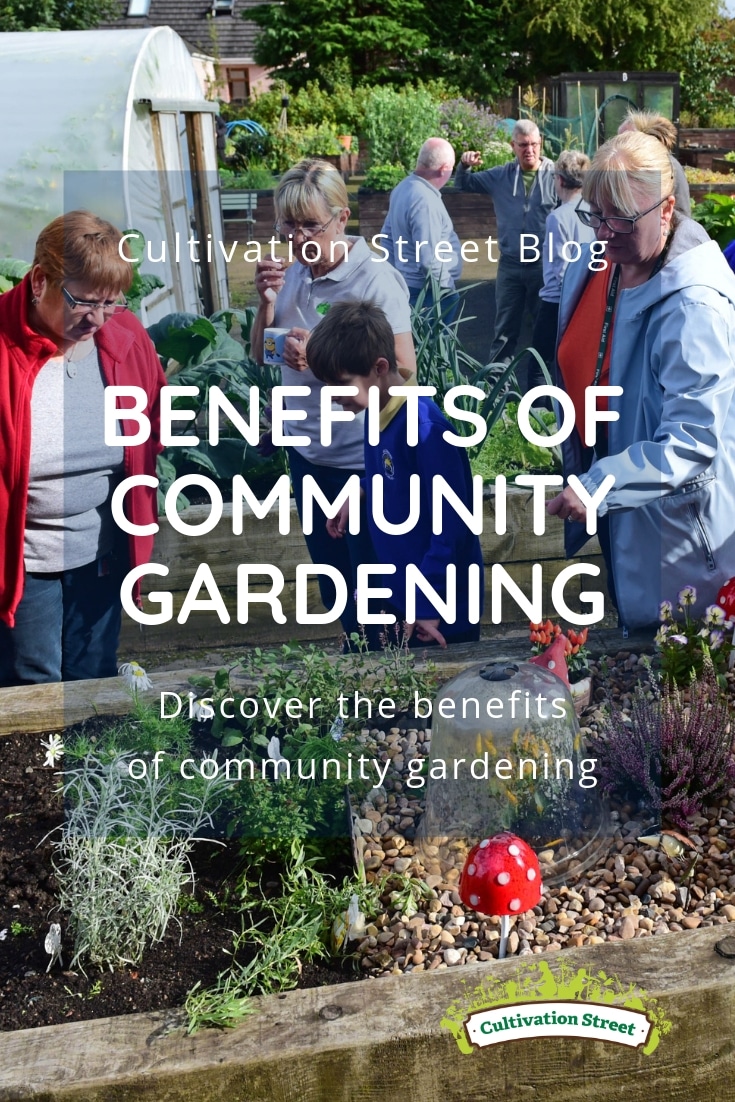
If this article has inspired you to become part of the Cultivation Street campaign, register for free now to take your community gardening project to the next level.
You’ll receive an array of free resources, from seed packs, planting calendars to seasonal newsletters jam-packed with gardening advice, ideas and success stories to whet your gardening appetite. You’ll also be given a chance to win big in the annual Cultivation Street competition, which has a staggering £20,000 to giveaway to school and community gardening projects that are changing the lives of people across the UK.


